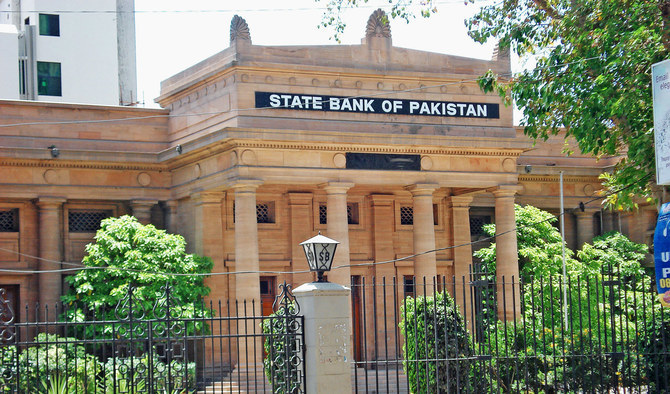KARACHI: Overseas Pakistanis will get direct access to the country’s banking system through Roshan Digital Account (RDA), which will be launched in the first week of September, the prime minister's special assistant told Arab News on Sunday.
The new initiative of the State Bank of Pakistan (SBP), the central bank, aims to integrate overseas Pakistanis into the country's banking system and will be launched in collaboration with eight commercial banks that operate in Pakistan.
"Roshan Digital Account will be launched from Sept. 4. The prime minister, Imran Khan, has approved the launch of the initiative," Sayed Zulfikar Bukhari, the special assistant on overseas Pakistanis, said.
He added that the initiative will be "a very crucial opportunity to invest in Pakistan" for overseas Pakistanis.
Overseas Pakistanis will be able to open accounts in Pakistan without visiting their home country. The process will require only basic information and documents. All necessary customer due diligence would be completed within 48 hours, according to official documents seen by Arab News.
RDA will provide access to all conventional account services, including funds transfer, online bill payments, e-commerce and other payments in Pakistan. It will also allow users to invest in fixed deposit products offered by banks, invest in Pakistan’s stock market and will be backed by debit and virtual debit cards for both domestic and overseas use.
According to the documents, accounts will be available in foreign currencies and rupees, and will also enable investment in specially designed saving instruments in the US dollars and Pakistani rupees, in both conventional and Sharia-compliant forms.
Overseas Pakistanis say the initiative, if it works as planned, will help them support their families in the home country in a quicker and more orderly way.
"I opened an online account in my home country but it was not working properly. This, if it works properly as I'm being told, will enable me to pay bills, as my family members have to travel from their village to the city to do that, which is troublesome nowadays," Muhammad Munir, a Pakistani worker, told Arab News from Sharjah in the United Arab Emirates.
Others, however, doubt in the process of verification of and consistency of the policies governing the program.
“The biometric process there (in Pakistan) is outdated, after a few days the system does not recognize the fingerprints," Masood Abdali, an energy expert, told Arab News from Texas, US. "I know hundreds of overseas Pakistanis whose accounts in Pakistan were not renewed because of the mismatch of fingerprints."
He questioned policy guarantees citing a 1998 decision which made Pakistan freeze foreign currency accounts after it conducted nuclear tests.
"The memories of accounts freeze in 1998 still haunt overseas Pakistanis ... Second bigger issue is the undue interference of the tax agency, because through such accounts people will be investing heavy amounts in their home country, that frightens people," he said, expressing hope that the issues will be addressed before the launch.
















